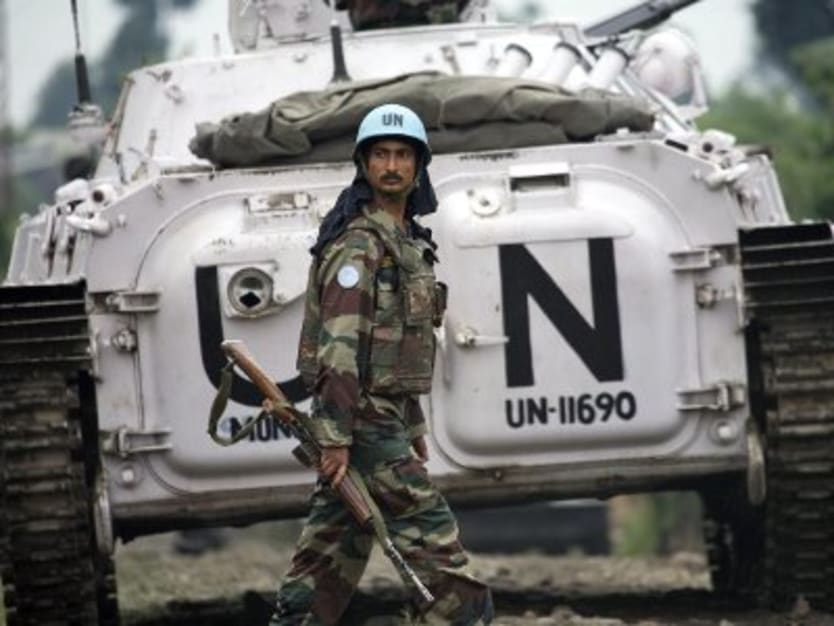
International meetings, high-level visits and robust media coverage have not been enough to curb ongoing atrocities in the Democratic Republic of the Congo.
Regional leaders from 11 nations are convening Aug. 7 and 8 to address what Oxfam is calling “a terrifying absence of state authority and security,” and may seek to change the mandate of the U.N. peacekeeping mission currently deployed there.
Other options up for discussion by the International Conference on the Great Lakes Region include bringing a “neutral force” drawn from other African countries into the existing peacekeeping mission, or establishing a separate additional force pooled from regional armies, according to The Associated Press.
Rwandan President Paul Kagame and Congolese President Laurent Kabila agree in principle on using a neutral force, but do not see eye to eye on which forces are neutral, according to Agence France-Presse. The 20,000 U.N. peacekeepers currently deployed in Congo’s North Kivu province have been ineffective in stopping violent attacks.
U.N. Secretary-General Ban Ki-moon did not bring up the possibility of a changed mandate in remarks he made to the conference Tuesday (Aug. 7).
The current U.N. peacekeeping mandate, renewed unanimously June 27, authorizes blue helmets to use all necessary means to protect “civilians, humanitarian personnel and human rights defenders under imminent threat of physical violence and to support the Government of the DRC in its stabilization and peace consolidation efforts.” It costs the United Nations $1.2 billion a year.
The fight against the newest rebel group M23 has taken the pressure off older militias, now enjoying resurgence in their ability to terrorize civilians unchecked. U.S. Secretary of State Hilary Clinton called the widespread violence “a serious threat to regional security and stability” in an Aug. 7 speech from Pretoria, South Africa.
Killings, child abductions, rapes and displacement increased dramatically in eastern Congo in recent months, with millions under the control of various militias. U.N. humanitarian chief Valerie Amos was forced to cancel a trip to speak with displaced Congolese in a mining town 50 miles north of Goma, North Kivu’s capital city, due to poor security. Amos is scheduled to visit a refugee camp in Rwanda later this week.
The proliferation of armed groups controlling vast swathes of territory has caused a humanitarian catastrophe, according to Oxfam: Nearly half a million people have fled their homes in the past four months, and more than 20,000 cases of cholera have been reported nationally. Development work has basically stopped, as has farming and trading. People are too afraid to leave home or are displaced from their land. Rebels steal crops or set up illegal stops to charge transit fees.
Ministers of Defense from the 11 countries in the conference pledged at an Aug. 1 meeting in Khartoum to establish a Joint Intelligence Fusion Center tasked with monitoring security and analyzing threats posed by “Negative Forces” in Congo by the end of the month.
Read more:
Read more development aid news online, and subscribe to The Development Newswire to receive top international development headlines from the world’s leading donors, news sources and opinion leaders — emailed to you FREE every business day.


